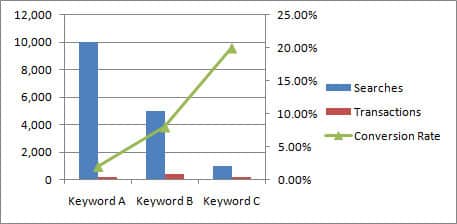Ranking for converting organic and local keywords is a crucial part of any online business. It is the process of optimizing your website to appear on top of search engine results when users search for specific keywords related to your business. The goal of ranking is to attract more traffic to your website, which in turn leads to more conversions and sales. However, ranking for organic and local keywords can be challenging and requires a lot of effort and expertise. In this article, we will discuss some tips on how to rank for converting organic and local keywords.
Conduct Keyword Research
Keyword research is the foundation of any successful SEO strategy. It involves identifying the keywords and phrases that your target audience is searching for online. The goal of keyword research is to find the most relevant and high-converting keywords that you can target on your website.
To conduct keyword research, you can use tools such as Google Keyword Planner, SEMrush, Ahrefs, or Moz. These tools will provide you with data on search volume, competition, and keyword difficulty. Use this data to identify the keywords that are most relevant to your business and have the highest search volume.
Optimize On-page Elements
On-page optimization involves optimizing the elements on your website to make them more search-engine friendly. These elements include the title tag, meta description, header tags, and content. On-page optimization is critical for ranking organic and local keywords.
To optimize your on-page elements, ensure that your title tag and meta description are compelling and include your target keyword. Use header tags to structure your content and make it more readable. Also, ensure that your content is high-quality and relevant to your target audience. Use your target keyword naturally throughout your content but avoid keyword stuffing.
Build High-Quality Backlinks
Backlinks are links from other websites to your website. They are essential for SEO as they signal to search engines that your website is authoritative and valuable. The quality and quantity of backlinks you have to your website will impact your search engine rankings.
To build high-quality backlinks, focus on creating high-quality content that is shareable and valuable to your target audience. Reach out to other websites and bloggers in your niche and ask them to link back to your content. You can also use tools such as Ahrefs to identify the websites that are linking to your competitors and reach out to them.
Create Local Content
Local SEO is critical for businesses that target a specific geographic location. Creating local content that targets specific cities, regions, or countries can help you rank for local keywords.
To create local content, ensure that you include the name of the city or region you are targeting in your content. You can also create location-specific pages on your website that include information on your business, address, and contact information. Also, ensure that your website is listed in local directories and review sites such as Yelp, Google My Business, and TripAdvisor.
Leverage Social Media
Social media can be a powerful tool for SEO as it can help you attract more traffic to your website and build high-quality backlinks. Use social media platforms such as Facebook, Twitter, and LinkedIn to share your content and engage with your target audience.
To leverage social media for SEO, ensure that your social media profiles are optimized for search engines. Use keywords in your social media bios, descriptions, and posts. Also, engage with your audience by responding to comments and messages.
In conclusion, ranking for converting organic and local keywords requires a combination of efforts. Conducting keyword research, optimizing on-page elements, building high-quality backlinks, creating local content, and leveraging social media can help you rank higher in search engine results. However, SEO is a long-term strategy, and it requires patience and persistence. Keep monitoring your website’s performance, make adjustments where necessary, and continue









Add comment